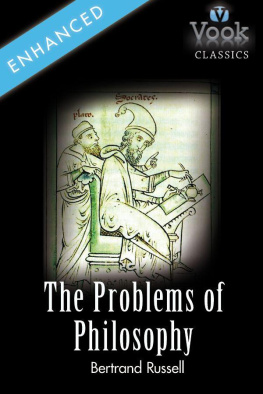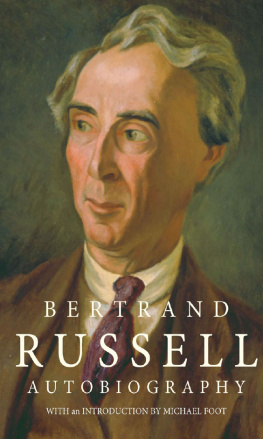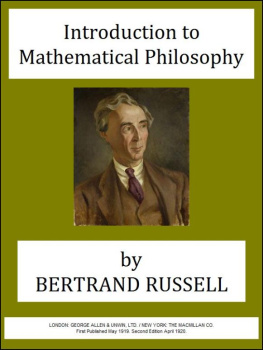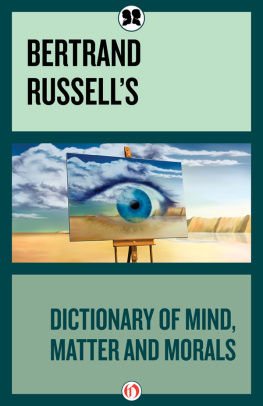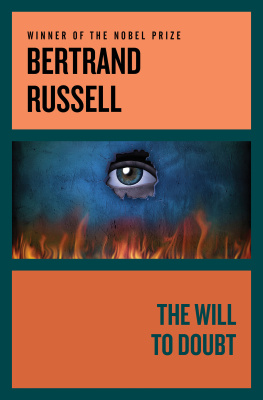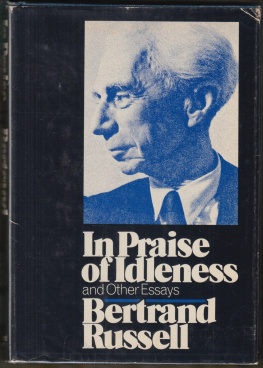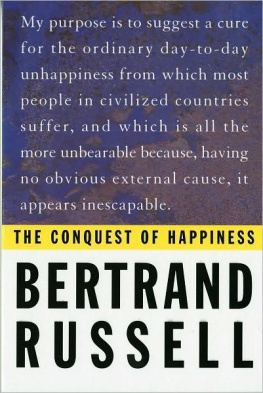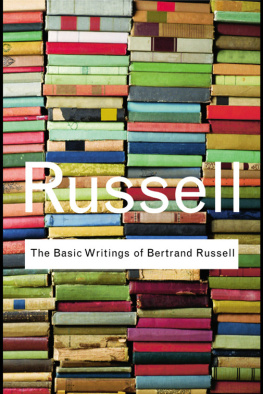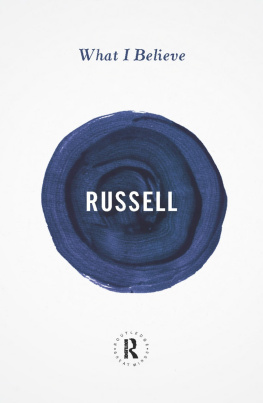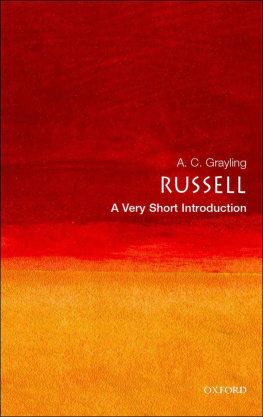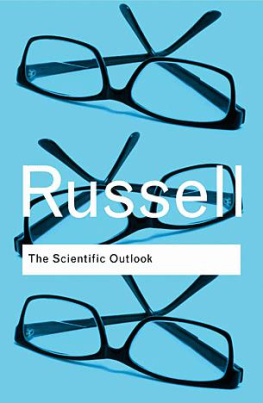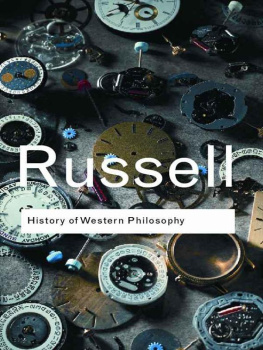The Problems of Philosophy by Bertrand Russell: Vook Classics
Table of Contents
Preface
In the following pages I have confined myself in the main to those problems of philosophy in regard to which I thought it possible to say something positive and constructive, since merely negative criticism seemed out of place. For this reason, theory of knowledge occupies a larger space than metaphysics in the present volume, and some topics much discussed by philosophers are treated very briefly, if at all.
I have derived valuable assistance from unpublished writings of G. E. Moore and J. M. Keynes: from the former, as regards the relations of sense-data to physical objects, and from the latter as regards probability and induction. I have also profited greatly by the criticisms and suggestions of Professor Gilbert Murray.
1912
Chapter 1
Appearance And Reality
Is there any knowledge in the world which is so certain that no reasonable man could doubt it? This question, which at first sight might not seem difficult, is really one of the most difficult that can be asked. When we have realized the obstacles in the way of a straightforward and confident answer, we shall be well launched on the study of philosophyfor philosophy is merely the attempt to answer such ultimate questions, not carelessly and dogmatically, as we do in ordinary life and even in the sciences, but critically, after exploring all that makes such questions puzzling, and after realizing all the vagueness and confusion that underlie our ordinary ideas.
In daily life, we assume as certain many things which, on a closer scrutiny, are found to be so full of apparent contradictions that only a great amount of thought enables us to know what it is that we really may believe. In the search for certainty, it is natural to begin with our present experiences, and in some sense, no doubt, knowledge is to be derived from them. But any statement as to what it is that our immediate experiences make us know is very likely to be wrong. It seems to me that I am now sitting in a chair, at a table of a certain shape, on which I see sheets of paper with writing or print. By turning my head I see out of the window buildings and clouds and the sun. I believe that the sun is about ninety-three million miles from the earth; that it is a hot globe many times bigger than the earth; that, owing to the earth's rotation, it rises every morning, and will continue to do so for an indefinite time in the future. I believe that, if any other normal person comes into my room, he will see the same chairs and tables and books and papers as I see, and that the table which I see is the same as the table which I feel pressing against my arm. All this seems to be so evident as to be hardly worth stating, except in answer to a man who doubts whether I know anything. Yet all this may be reasonably doubted, and all of it requires much careful discussion before we can be sure that we have stated it in a form that is wholly true.
To make our difficulties plain, let us concentrate attention on the table. To the eye it is oblong, brown and shiny, to the touch it is smooth and cool and hard; when I tap it, it gives out a wooden sound. Any one else who sees and feels and hears the table will agree with this description, so that it might seem as if no difficulty would arise; but as soon as we try to be more precise our troubles begin. Although I believe that the table is 'really' of the same colour all over, the parts that reflect the light look much brighter than the other parts, and some parts look white because of reflected light. I know that, if I move, the parts that reflect the light will be different, so that the apparent distribution of colours on the table will change. It follows that if several people are looking at the table at the same moment, no two of them will see exactly the same distribution of colours, because no two can see it from exactly the same point of view, and any change in the point of view makes some change in the way the light is reflected.
For most practical purposes these differences are unimportant, but to the painter they are all-important: the painter has to unlearn the habit of thinking that things seem to have the colour which common sense says they 'really' have, and to learn the habit of seeing things as they appear. Here we have already the beginning of one of the distinctions that cause most trouble in philosophythe distinction between 'appearance' and 'reality', between what things seem to be and what they are. The painter wants to know what things seem to be, the practical man and the philosopher want to know what they are; but the philosopher's wish to know this is stronger than the practical man's, and is more troubled by knowledge as to the difficulties of answering the question.
To return to the table. It is evident from what we have found, that there is no colour which pre-eminently appears to be the colour of the table, or even of any one particular part of the tableit appears to be of different colours from different points of view, and there is no reason for regarding some of these as more really its colour than others. And we know that even from a given point of view the colour will seem different by artificial light, or to a colour-blind man, or to a man wearing blue spectacles, while in the dark there will be no colour at all, though to touch and hearing the table will be unchanged. This colour is not something which is inherent in the table, but something depending upon the table and the spectator and the way the light falls on the table. When, in ordinary life, we speak of the colour of the table, we only mean the sort of colour which it will seem to have to a normal spectator from an ordinary point of view under usual conditions of light. But the other colours which appear under other conditions have just as good a right to be considered real; and therefore, to avoid favouritism, we are compelled to deny that, in itself, the table has any one particular colour.
The same thing applies to the texture. With the naked eye one can see the grain, but otherwise the table looks smooth and even. If we looked at it through a microscope, we should see roughnesses and hills and valleys, and all sorts of differences that are imperceptible to the naked eye. Which of these is the 'real' table? We are naturally tempted to say that what we see through the microscope is more real, but that in turn would be changed by a still more powerful microscope. If, then, we cannot trust what we see with the naked eye, why should we trust what we see through a microscope? Thus, again, the confidence in our senses with which we began deserts us.
The shape of the table is no better. We are all in the habit of judging as to the 'real' shapes of things, and we do this so unreflectingly that we come to think we actually see the real shapes. But, in fact, as we all have to learn if we try to draw, a given thing looks different in shape from every different point of view. If our table is 'really' rectangular, it will look, from almost all points of view, as if it had two acute angles and two obtuse angles. If opposite sides are parallel, they will look as if they converged to a point away from the spectator; if they are of equal length, they will look as if the nearer side were longer. All these things are not commonly noticed in looking at a table, because experience has taught us to construct the 'real' shape from the apparent shape, and the 'real' shape is what interests us as practical men. But the 'real' shape is not what we see; it is something inferred from what we see. And what we see is constantly changing in shape as we move about the room; so that here again the senses seem not to give us the truth about the table itself, but only about the appearance of the table.
Similar difficulties arise when we consider the sense of touch. It is true that the table always gives us a sensation of hardness, and we feel that it resists pressure. But the sensation we obtain depends upon how hard we press the table and also upon what part of the body we press with; thus the various sensations due to various pressures or various parts of the body cannot be supposed to reveal directly any definite property of the table, but at most to be signs of some property which perhaps causes all the sensations, but is not actually apparent in any of them. And the same applies still more obviously to the sounds which can be elicited by rapping the table.

